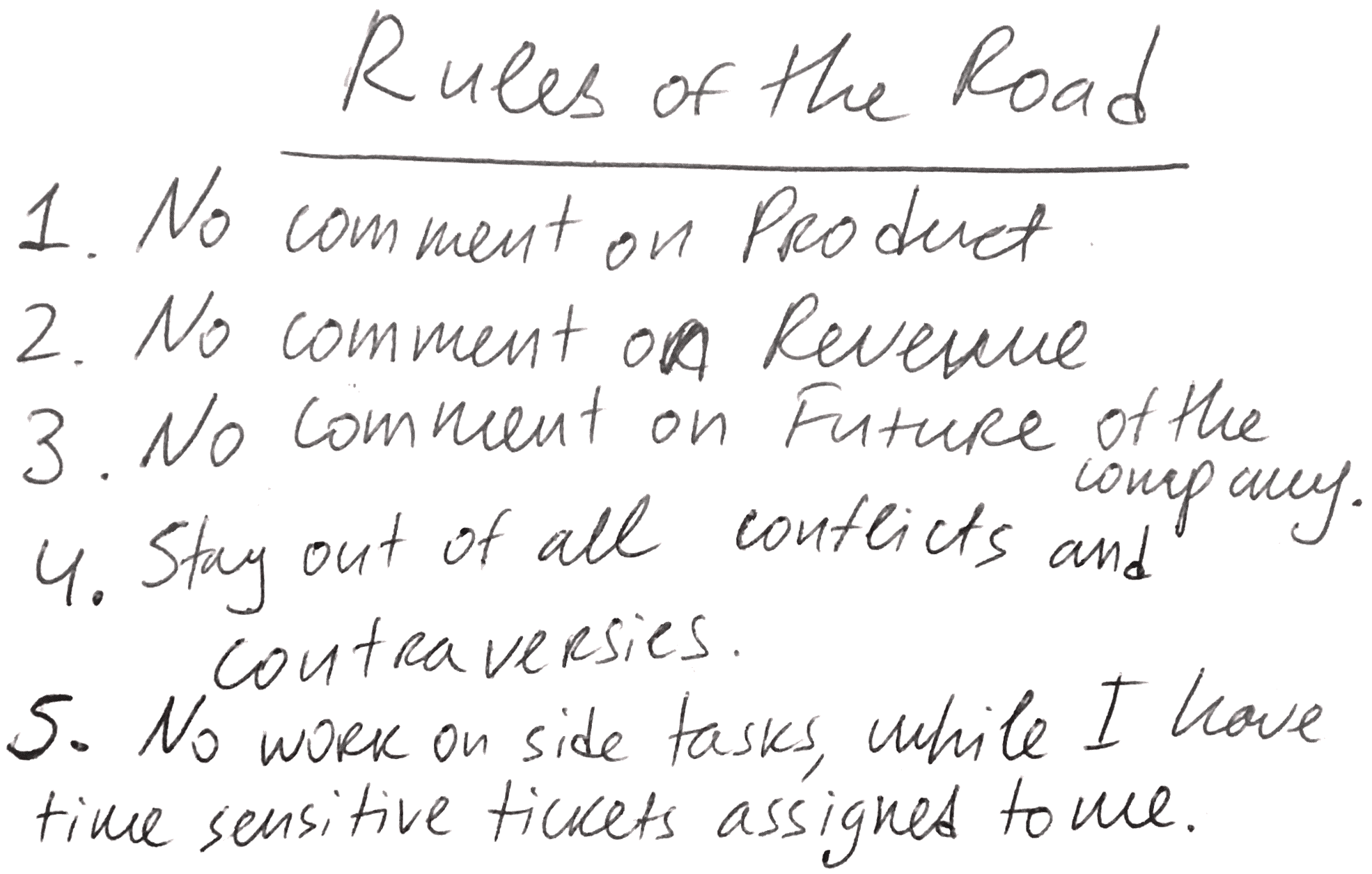Table of Contents
- Background
- No Comment on the Product, Revenue, and Future of the Company
- Stay out of all conflicts and controversies
- No work on side tasks, while I have time sensitive tickets assigned to me
- Conclusion
Background
Few years ago I found myself in a bad situation. I accepted a job that was not a good fit. After sixth months I hated my job and was ready to quit.
At the same time my wife and I just found out that we were expecting our second child. She asked me to stick around until the baby was born. Changing jobs in the United States often means changing health insurance. We did not feel comfortable doing that in the middle of the pregnancy.
I ended up staying at that company for eight more months, leaving shortly after my son was born. To make the rest of my time there less miserable, I came up with five rules.
The best thing to do about a miserable job is to quit and find a new job. Sometimes, however, it’s not an option. Bad Economy. Pregnancy. Sickness. Quick job change may not be always possible.
I hope these rules they will be helpful to someone in a similar situation.
- No Comment on the Product
- No Comment on Revenue
- No Comment on Future of the Company
- Stay out of all conflicts and controversies
- No work on side tasks, while I have time sensitive tickets assigned to me
No Comment on the Product, Revenue, and Future of the Company
These are very similar rules, but it helped me to separate them. The company that I worked for was dumping millions of dollars into a failing product and I would often express my concerns. My resistance did not make any difference and caused me a lot of stress.
I was not getting paid to be an advisor. I was getting paid to write code.
Stay out of all conflicts and controversies
This is a good rule to follow for any workplace, but it was particularly helpful there. Staying out of drama (politics, arguing over technology choices etc.) allowed me to save my mental energy.
No work on side tasks, while I have time sensitive tickets assigned to me
I like to focus on important things and help people. When I first started working at the company, it had only a few integration tests, no unit tests, no JavaScript linting, no code coverage tool etc. I’ve spent most of my first 6 months advocating these practices.
I would re-write and unit tests poorly written code. I would volunteer to debug production bugs. I took the time to document my work and share my experience with junior developers.
Those things added up, causing me to fall behind on the work assigned to me. Our managers looked down on me for “taking too long” to complete a “simple task”. I was expected to be more like developers who moved fast (and broke things).
My life became much easier once I began to focused mostly on the tickets assigned to me.
Conclusion
It is important to make the best out of any situation. These simple rules made the rest of my time with the company tolerable. They freed up my energy to focus on other things that were important to me.
I got to be more happy and present with my family. I documented my experience debugging performance issues, resulting in two of my best posts of all time: 11 Tips to Improve AngularJS Performance and Simple Guide to Finding a JavaScript Memory Leak in Node.js. I invested four months into find my next job, that was a much better fit. I wish you the same!
Photo of the original list:
